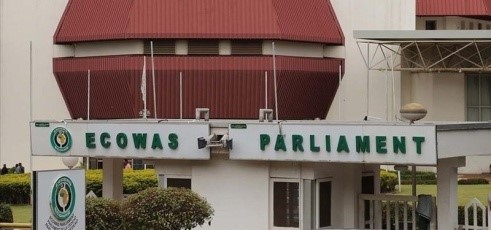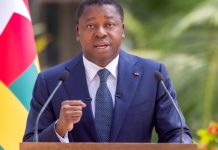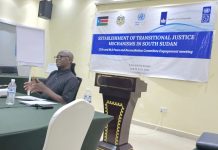By Kebba AF Touray
The ECOWAS Parliament has convened a high-level joint committee meeting in Monrovia to assess the effectiveness of the regional investment policy amid growing concerns over youth unemployment and economic exclusion in West Africa.
Held under the theme “Assessing the Effectiveness of the ECOWAS Investment Policy as a Panacea for Addressing the Rising Levels of Unemployment in the Sub-Region”, the session opened on Monday, June 16, 2025, bringing together members of the Joint Committee on Administration, Finance and Budget; Public Accounts; Macroeconomic Policy and Economic Research; and Industry and Private Sector.
Representing the Speaker of the ECOWAS Parliament, Fourth Deputy Speaker Hon. Billay G. Tunkara opened the meeting with a sober reflection on the region’s economic trajectory. While acknowledging a decade of notable economic growth driven by trade, infrastructure, and regional cooperation, Hon. Tunkara cautioned that the benefits had not been equitably distributed, especially among the youth.
“Unemployment rates in ECOWAS countries average around 15 percent, with youth unemployment reaching up to 30 percent in some nations,” he warned. “If left unchecked, this trend threatens social cohesion, economic stability, and the very foundation of our regional integration efforts.”
The ECOWAS Investment Policy (EIP), adopted in response to these challenges, aims to attract, facilitate, and maximize investments to spur job creation, sustainable development, and poverty reduction. Hon. Tunkara emphasized its core pillars: simplifying procedures, reducing barriers, integrating regional markets, investing in employment-intensive sectors like agriculture and manufacturing, and supporting small and medium enterprises (SMEs) through public-private partnerships.
“While these objectives are well-intentioned,” he said, “implementation and actual impact must be critically examined to determine whether they are making a real difference in addressing the region’s employment crisis.”
According to Hon. Tunkara, there has been notable progress in investment inflows across West Africa, with increases in both foreign direct investment (FDI) and intra-regional investments, particularly in infrastructure and telecommunications. He attributed this to policy reforms by member states and regional projects such as the West Africa Power Pool and the Trans-West African Highway, which have helped foster economic integration and mobility.
Still, challenges remain. “Many member states suffer from limited institutional capacity, inadequate infrastructure, and a lack of access to affordable finance—especially for SMEs,” he said. “These gaps continue to hinder the realization of our full investment potential.”
To address these gaps, the Deputy Speaker proposed aligning investment with sectors that have high labor absorption potential—such as agro-processing, light manufacturing, and services. He also stressed the need to strengthen national and regional institutions tasked with implementing and monitoring investment strategies.
“Job creation must be placed at the heart of investment strategies,” he urged. “We must also foster an environment that allows entrepreneurs to thrive and innovate. Public-private partnerships should be strategically leveraged to expand employment opportunities across the region.”
Also speaking at the opening, Senator Edwin Melvin Snowe Jr., head of Liberia’s delegation to the ECOWAS Parliament, welcomed the delegates with national pride. He highlighted Liberia’s recent election as a non-permanent member of the United Nations Security Council—only the second time in the country’s history—as a sign of Liberia’s renewed global engagement and commitment to international cooperation.
“This achievement marks a new chapter in our nation’s contribution to global peace and development,” Snowe said. “It’s also a reflection of our readiness to lead and to shape transformative policies—including those that affect economic growth and job creation in our region.”
As the meeting continues this week, the joint committee is expected to review the policy’s track record, identify institutional weaknesses, and recommend adjustments to ensure that investment initiatives effectively address the region’s urgent employment challenges.
“Our shared task,” Hon. Tunkara concluded, “is to ensure that this policy truly delivers on its promise—by attracting quality investment, supporting private sector growth, and creating decent, sustainable jobs for our people.”



















